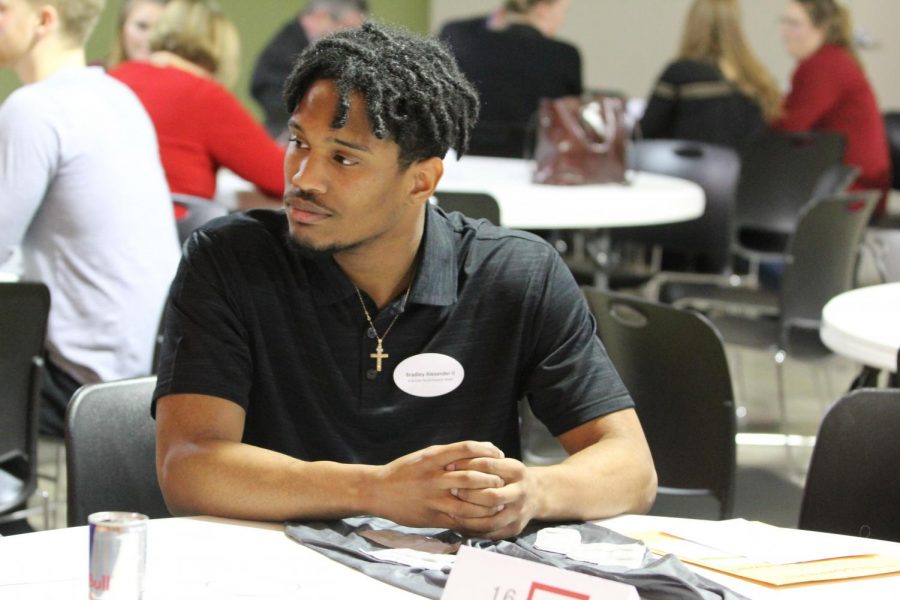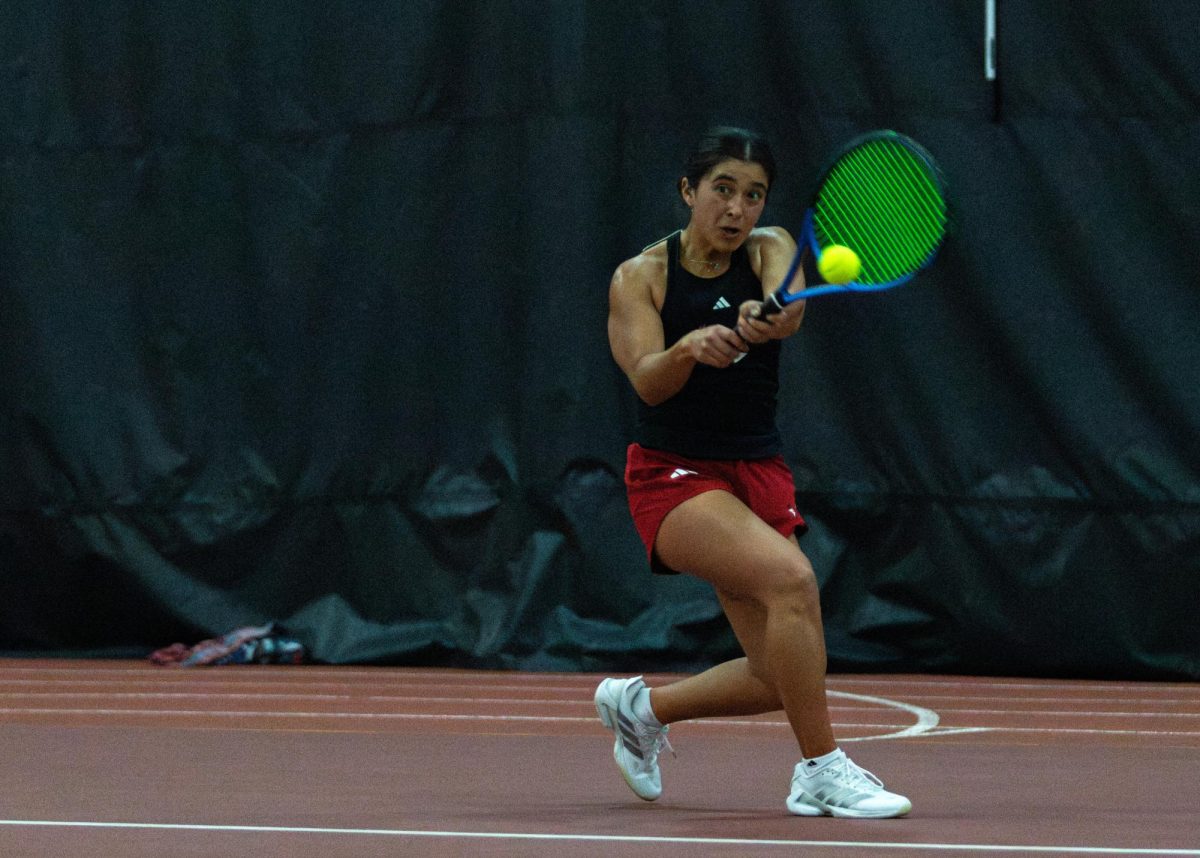Semifinals set for business pitch competition
Contestant Bradley Alexander II presenting his pitch during the second qualifying round of the business pitch competition. Alexander II placed second in the event and will move on to the semifinals.
March 3, 2019
Same stakes, different formation and a cash prize incentive provided at the end of the round.
The EWU Center for Entrepreneurship launched the second qualifying round for its third annual business pitch competition on Feb. 26.
The event consisted of 20 teams competing for $500 and a spot in the next round by explaining their entrepreneurial ideas to judges from all over the community. By the end of the second qualifying round, another set of six teams moved on to the semifinals.
“One of the things that we have always pushed on is that a big part of this event is practicing and learning how to talk about your ideas and learning how to hear feedback because that is huge,” the Center for Entrepreneurship Director Bruce Teague said.
Changes were made for the second qualifying round because the Center for Entrepreneurship is always thinking of ways to make the business pitch competition better as they resemble an entrepreneur mindset, according to Teague.
Referring to the feedback from the first qualifying round, judges preferred to have the option to sit down rather than remain standing throughout the competition while critiquing the teams, according to Teague.
The second qualifying round was in the formation of speed dating. The tables each had a number and were equivalent to the number of ideas that were registered. After seven minutes or so, teams would rotate onto the next table to present their ideas.
The judges were separated so that different background experiences weren’t clustered together. This made it so teams would end up with an interesting cross section of experience and backgrounds as the they rotated from table to table.
“The other big change is that for the first time, we are offering prize money with our qualifiers and I expect that this will continue into next year,” Teague said. “So we have never done that before, but we decided that maybe it would make it a little more exciting if something is being won at the qualifier itself.”
26 to 30 judges that were present at the event were also at the first qualifying round. In the qualifiers there isn’t a concern with overlap because it’s all about engaging with the community and different perspectives, Teague said. In the semifinals and finals there will not be overlap with the judges.
One of the judges from EWU was Jeffrey Stafford, Professor of Organizational Communication & Leadership. Stafford said that he likes to be supportive of the entrepreneurship program and thinks that the program is a wonderful opportunity for students.
“Communications and entrepreneurship enhance each other because entrepreneurs have got to communicate out to their external clients, but also got to communicate with their suppliers and employees, so almost everything an entrepreneur does is about communication,” Stafford said. “And especially when you start talking about, you know not just talking communication, but how is your company organized even when you’re a company of one, how do you pursue quality, things like that are all communication as well as entrepreneurial.”
Another judge was EWU alumni Ramsey Pruchnic who graduated in 2010 with a degree in marketing. Pruchnic is the founder of the business Hello Sugar and president of Strategy Labs.
Pruchnic’s advice for any aspiring entrepreneurs is to seek opportunities to get mentors and internships and expand the research side of a business idea by exploring the market, the target audience and the financial costs.
The Center for Entrepreneurship will be starting a co-curricular certificate in entrepreneurship next fall.
“The big thing is that the pitch competition is building and is becoming a big EWU tradition,” Teague said. “But as of next year, this is going to be a part of earning points towards the co-curricular certificate in entrepreneurship.”
Director of Student Engagement for the Center for Entrepreneurship Dave Gorton had eight of his students participating in the event and wanted his students to go out, meet people and gain feedback.
“Not only are they going to talk about the power of their idea, (but) also how to form that and go from here,” Gorton said. “What we are trying to teach them is not just have a great idea, is actually take the idea and take it forward.”
Tied for sixth place were the pitches Goldmine by Connor Skinner and Lot Spot by Connor Eakin, Kyler Oblad and Kristina Kostenyuk.
Originally in fifth place was the pitch Web Genesis by Lisa Faulkner and Kayla Camozzi, though they have decided to withdraw from the semifinals because they are graduating.
The two alternate teams that were invited to compete in their place had the pitches Drag and Shovel by Rob Sten and Tech Inc. by Enrique Sydney and Isaac Nokes.
In fourth place was the RKG Inc. pitch by Gabriel Cesar, Yajaira Orozco and Kimberlin Bennett and in third place was the Green Dog pitch by Ryan Halterman, Junichi Minakata, Bobby Nguyen and Hayden Leslie.
In second place was B-Active Performance Wear, pitched by Bradley Alexander II and the overall winner was Parker Burchett who presented an idea called GPA Online.
The purpose of B-Active Performance was to increase athletic performance through weighted compression wear, and try to change the market, according to Alexander II.
Alexander II came up with the idea in high school when he ran track and played football. Initially he was nervous, but found his groove after the first round of pitching and was surprised to hear that he is moving on to the Semi Finals.
At this time, Burchett, the first-place winner, disclosed that he did not want to go on record to The Easterner.
Thirteen teams will be presenting a video pitch in the semifinals on March 14 at the River Point campus and the final Eagles’ Nest Pitch Contest will be on May 17 in Showalter Hall.







